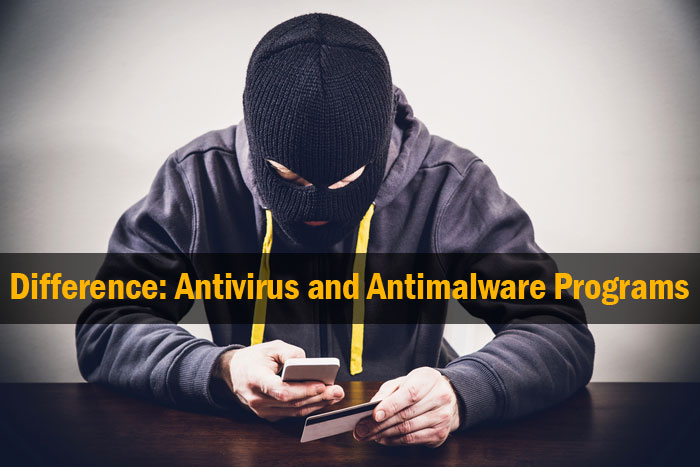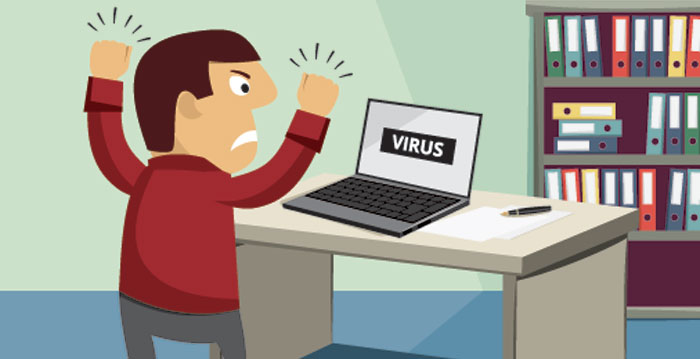Nowadays, whenever we talk about protecting our computer from malicious threats, two solutions obviously come, in front of us — Antivirus and Antimalware! Although many people think Antimalware is another term of Antivirus, it is not actually. The difference between antivirus and Antimalware can be compared to that between a car and bike and its your requirement to choose a car or bike! To do that, however, you should know how both these solutions would be different once installed in your computer. In this post, we shall have a comparison of antivirus and antimalware in such a way that you would know which one to choose.

Well, before we move on to the exact comparison, we should get the semantics out of it! First, we shall compare the two terms, Virus and Malware. It’s only after that we get to know how this ‘anti’ label works.
Virus and Malware — What’s the Difference
As per Wikipedia definition, Virus is a malicious program that, when executed, replicates by inserting copies of itself, into other programs, data files or other sectors. So, once the virus has executed itself in your PC, it will start infecting the whole computer. Although viruses are commonly used for bringing harmful activity to PC, they can also be used for data stealing, spamming and privacy theft etc. Viruses have been here for more than a while and now they’re less used by criminal minds.

As opposed to these, Malware is any software used to disrupt computer operations, gather sensitive information on PC and gain access to the computer system. Unlike Viruses, malware doesn’t replicate much, but these malicious tools can effectively be used for spying and related purposes. Nowadays, malware are commonly used by criminals to get sensitive data from users such as bank details, username password data etc. There are different types of malware like Trojans, spyware etc.
How Antivirus Programs Work?

So, we have told you what viruses are and antivirus software are meant to fight off these malicious tools, which have a replication capacity as well. Antivirus programs will delete these viruses and restrain them from replication so that the PC will be rescued. To find the presence of viruses, antivirus solutions offer different types of scanning, including the deep ones and casual ones, also known as quick scan vs full scan. What has to be noted here is that, nowadays, most antivirus solutions come with anti-malware capabilities! It means that you get protection from different kinds of malware such as worms, Trojans, backdoors, exploits, rootkits, PUPs, adware, ransomware and key loggers.
How Anti-Malware Programs Work?
As the name says, Anti-malware software is dedicated to fight off malware found on your PC. You get good-enough protection from various threats, including Trojans, key loggers that steal your information, spyware that subject you to privacy threat, ransomware etc. It has to be noted that the world of malware is growing day by day and most anti-malware programs offer up-to-date database of these threats. Newer ones are known as zero-day exploits. In short, these anti-malware software can help you get rid of various threats against your privacy, safety and confidentiality.
Read: Difference: Antivirus and Internet Security
Old but Not-Unused
So, experts and companies say that viruses have become rudimentary and they are no longer used for stealing data / causing threats. Nevertheless, that doesn’t mean that viruses are incapable of destructing your computer. There may be some criminal minds that make use of viruses and try to take down your PC. So, keep that in mind before you are at your decision.
The Final Verdict
So, we have told you about the differences between antivirus and antimalware! As we have said, almost all antivirus tools out there can protect your computer from different kinds of malware along with the legacy viruses. We recommend Bitdefender, Kaspersky or Norton for top notch protection (Of course any one of them). Although it is always good to take an extra precaution in this bad world, you should try getting a combination of a good antivirus solution and an on-demand antimalware tool.
For instance, you can have an antivirus that focuses virus protection and another antimalware for fighting off serious malware. However, you have to make sure that both the tools don’t interfere. With that in mind, you can get stable and trustworthy protection from various threats.